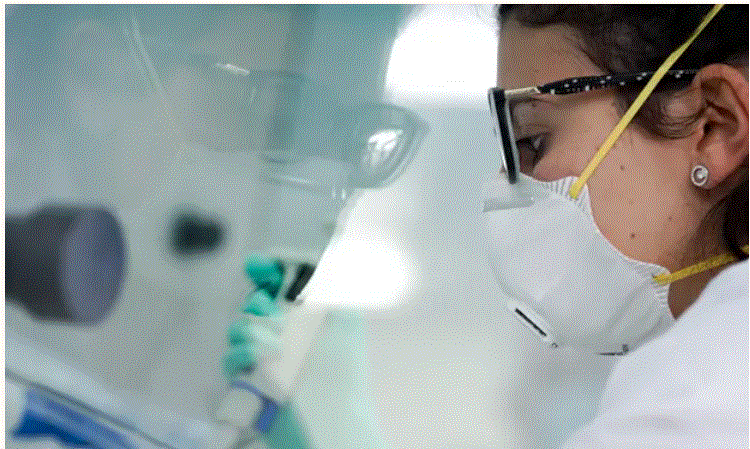
FSM News and Articles
World Health Organisation supports reopening of Chinese wet markets: Professor John Dwyer, an immunologist at UNSW and public health expert who spearheaded Australia’s fight against HIV/AIDS, says it’s unlikely the markets will remain shut for long, despite the risks they pose. “It’s such a culturally important thing for some people in China that I’ve got my doubts.” He tells Deborah Knight the wet markets are notorious for spreading new and deadly diseases. “When you bring wild exotic animals in close contact with humans… of course it’s going to be possible that the viruses will mutate, and pass from animals into humans and cause havoc. It is staggering to think that’s going on.”
FSM Friends’ News and Articles
More drug shortages due to COVID-19: Group purchasing organizations, wholesalers, manufacturers, regulators, health systems, and insurers need to find new ways to collaborate and share information in order to fix these fragile supply chains and to reduce the impact of shortages on patients. More transparency will help. Leadership is essential. I’ve noted before that no single organization “owns” drug shortages. Health systems need to act now, decisively, to fix these problems.
Indelibly sear this into the national public and political DNA – evidence-based prevention saves many lives. So let’s all honour our COVID-19 heroes: This article gets more political than I would like, but contains some salient points about the importance of evidence based medicine and policy. Will COVID-19’s legacy be a newfound respect for evidence?
General
Dr Oz’s Hydroxychloroquine advocacy seduces Trump as coronavirus wellness woo surges: Celebrity health advice was mostly bunk before this pandemic emerged. It is bunk now. And it will be bunk after the crisis passes. And yet Oz seems to becoming more prominent, not less. “Touting the unproven benefits of the drug without talking about the mixed science and its potentially deadly side effects is inexcusable.” It is exactly this kind of irresponsible commentary that led to a man to mistakenly ingest chloroquine phosphate (thinking it would prevent the coronavirus) and die.
Some people turn to herbal medicine for virus without proof: “Some of these practices have existed for centuries. But with little or no scientific evidence that they work against COVID-19, attempts have been made to frame it as a cultural issue and not a scientific one. Promoting treatments “without an adequate scientific basis” was worrying, said Dr. Daniel Kuritzkes of Brigham and Women’s Hospital in Boston.”
Even in a pandemic, continue with routine health care and don’t ignore a medical emergency: If symptoms flare up or in an emergency, if your symptoms get worse, you should still contact your GP or specialist if this is your normal course. This is important even if you don’t think your symptoms are urgent. And it remains critical that in life-threatening circumstances – like if you believe you’re having a heart attack or stroke – you seek medical attention immediately by calling triple zero (000). These are medical emergencies and our hospitals are well-equipped to respond, even during COVID-19.
No big whoop – adult pertussis may not produce whooping cough – Harvard Health Blog: With COVID-19 clogging our news feeds and monopolising our lives, it can be easy to forget the basics of our healthcare. Childhood immunsiation is important to protect children and engender herd immunity that will safeguard the health of more vulnerable people: elderly people, cancer patients, immune-suppressed people. However, older people need protection from these childhood diseases too because the immunisations they received as a child may no longer be protecting them today. Whooping cough can present as a more insidious disease without the dramatic whooping sound that gave it its name. This being the case, it is important for people renewing their tetanus boosters every ten years to get a Tdap booster to cover them for tetanus, diphtheria and pertussis (whooping cough), to protect themselves and those around them.
Great Moments in Health and Science
The development of personal protective equipment – PPE from the beginning: Developed in stages over many centuries and not limited to just the healthcare field, essential PPE that we often take for granted such as hard hats started out as worker-driven attempts at making dangerous work conditions slightly safer.
Today’s Abused Health Concept
Doubt is essential for science – but for politicians, it’s a sign of weakness: As people watch the pandemic news, many have began to complain that there is uncertainty in the numbers being presented in that data are not precisely fixed and that assumptions are not ‘accurate’. Many have used this to reject the scientific narrative and instead promote conspiracies. In fact, science allows us to make the best of uncertain data, and to use these to make competent decisions. This is why it is so important to listen to the experts.